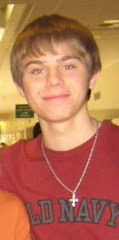In the Persuaders video, the three-stage technique used by Dr. Rapaille sounds like a very unique and interesting way to leverage focus groups. He takes his subjects on a psychic expedition past intellect, through emotions, into the primal core where the doctor strongly believes all purchasing decisions are made. He politely asks his subjects to not hold anything back and tell him exactly what is coming to their minds.
The first stage is purely intellectual. Dr. Rapaille asks the study’s subjects a question in order to give them a chance to show how logical or intelligent they are. In the video, he is trying to research and understand the topic of luxury. He asks his subjects, “When people try to sell you luxury things, what kind of words do they use?” The doctor does not care how the subjects respond to this question. He then gives his subjects some time for a break.
The second stage is all about the subjects delving into their own emotions. Dr. Rapaille says, “you are going to tell me a little story like I was a five year-old from another planet.” The doctor’s goal is for his subjects to go from being logical or intelligent in their thinking to being purely emotional. He wants his subject to not understand what they are doing anymore. He wants his subjects to be slightly confused and think that he is crazy. Dr. Rapaille gives his subjects another break.
When the subjects come back to the focus group room, there are no more chairs. The doctor wants his subjects to be wondering where the chairs went. He then asks his subjects “to go back to the very first time that they experienced what we are trying to understand.” The doctor is actively searching for the subjects’ primal urges. He is looking for what he calls the “reptilian hot buttons” that compel us to action. His theory is that the reptilian always wins. He does not care what his subjects tell him intellectually. Dr. Rapaille even turns off the lights in the room so that his subjects are in the mindset a little bit like the one when they wake up each morning. According to Dr. Rapaille, “things come back to your mind that you had forgotten for twenty to thirty years.”
The doctor and his team somehow decipher the chicken scratch of his subjects in order to unlock the code of the topic he is researching. The chicken scratch is made up of half-remembered words and pictures associated with the topic he is researching. Dr. Rapaille believes that the code he discovers from his three-stage process enables him to understand the real needs of consumers. For example, “the code for SUVs is domination so Rapaille told car makers to tint the windows and beef up the size of their SUVs.” The doctor also recognized that a French company that was attempting to sell cheese to Americans was off code. He told them that cheese is dead in America and is put in the refrigerator. Dr. Rapaille suggested to the company’s marketers to market their cheese in America as something that is safe, is wrapped in plastic, and can be refrigerated.
Song’s goal of forging a real connection with women was a great idea because women are in a large group of consumers that were being ignored by other airlines. The benefits of offering low fares, organic food, and more entertainment options fit well with the target market Song was going after. Song was trying to create an emotional and optimistic experience for its consumers. Hiring the brand visionary, Andy Spade, as a consultant for Song sounded like a positive idea at the beginning. His decision to keep the initial advertising focused primarily on emotions by not including any airplanes or passengers was very risky and could later on turn out to be a big mistake. He was very focused on showing the audience what made Song different than other low-cost airlines, its unique style and spirit.
When a product is brand new and is unfamiliar to your target market, the best thing you can do is to show its points of parity or similarity to its competitive frame. That way, your audience knows what your product is. According to the video, only fifteen percent of their sample truly recognized Song. This means that a very small percentage saw the advertising and knew it was Song. Also, many consumers didn’t know what the advertising was for. Andy Spade tried to skip a crucial step in building brand equity and jump right into becoming part of culture. Song would have probably seen much better results if they would have waited until Song was well-established in the minds of consumers as a low-cost airline before bringing in Andy Spade as an advertising consultant.
Wednesday, March 25, 2009
Subscribe to:
Post Comments (Atom)

No comments:
Post a Comment